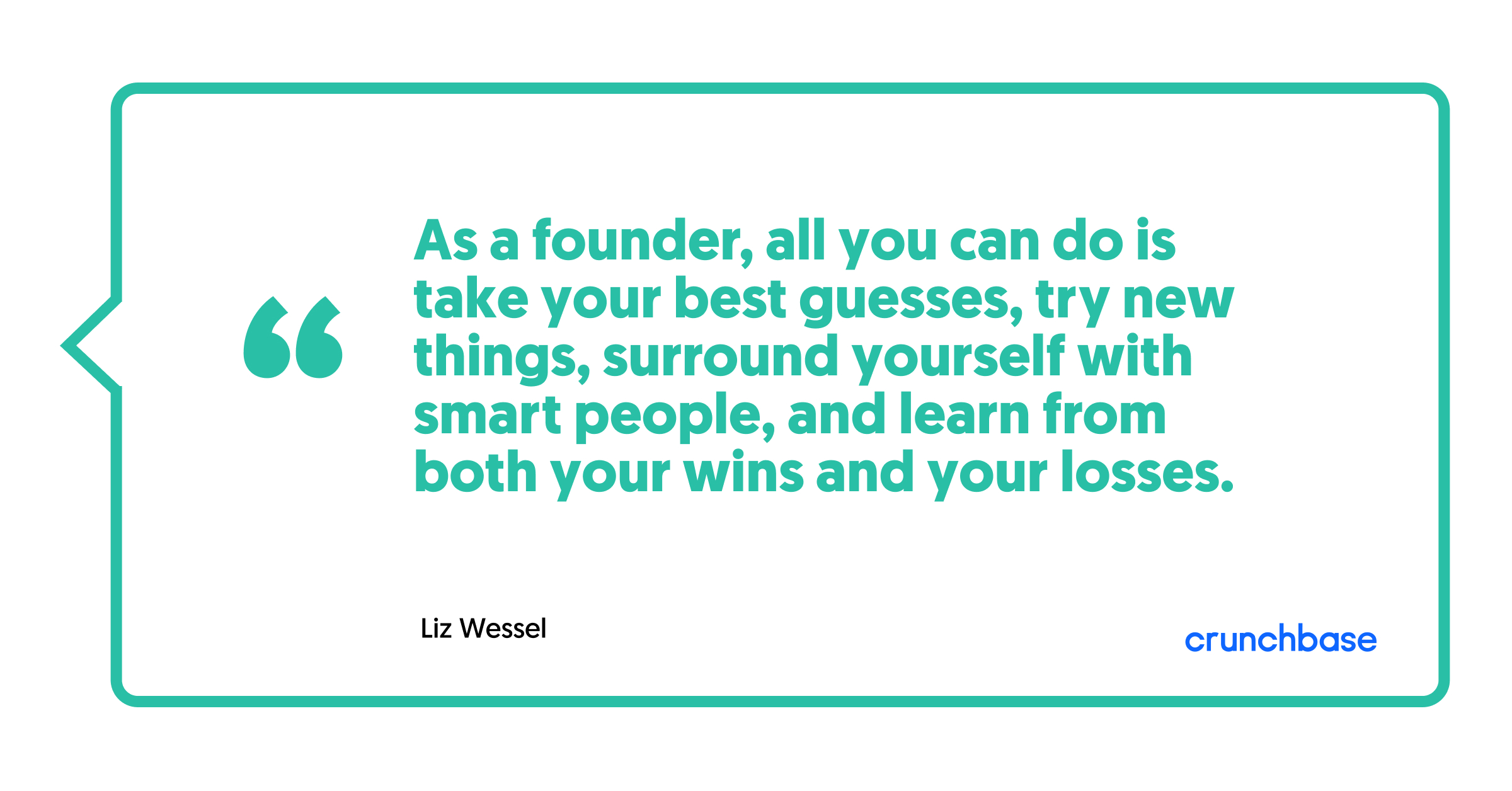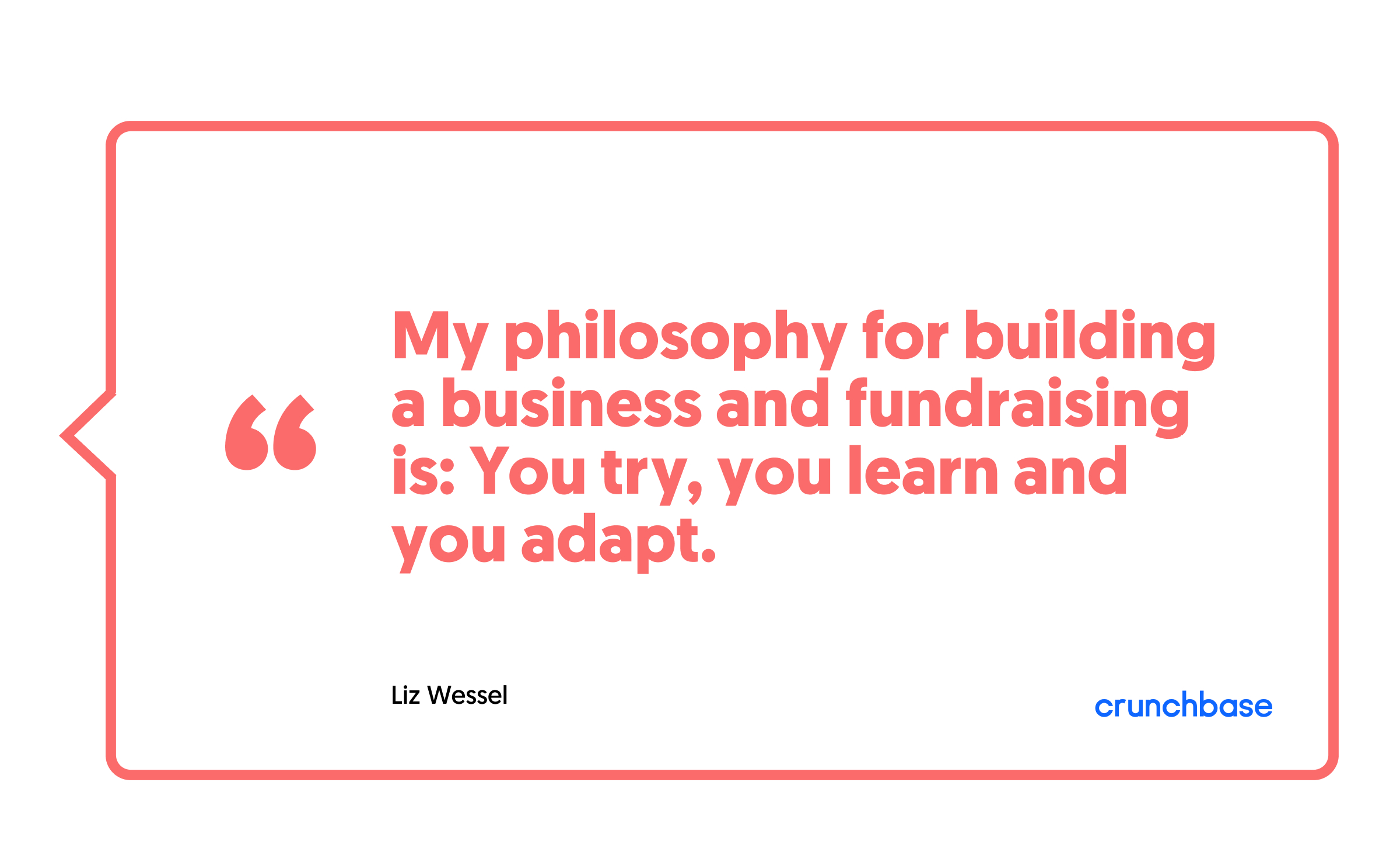Following the release of our recent report “A Decade in Review: Funding to the Female Founders” Crunchbase is highlighting female founders who are paving the way for the next generation of glass-ceiling-smashers. The “Female Founder Series” is comprised of stories, Q&As and thought-leadership pieces from female founders who overcame the odds, raised funding and are now leading successful companies.
When I was in college at the University of Pennsylvania, JJ Fliegelman (my co-founder and WayUp’s CTO) and I bonded over our mutual frustrations regarding the process of looking for internships and jobs while in college. And after joining Google right after graduation, I saw the frustration from the other side—so many applications for far fewer roles. It became clear how hard it was to recruit college students and recent grads because there’s so much quantity. It’s often hard to find great quality and diversity while also providing a great candidate experience.
Between those experiences and my growing passion for entrepreneurship, JJ and I both decided to quit our jobs at McKinsey and Google, respectively, and start WayUp together, which we did in July 2014 under its original name “Campus Job.”
The need to create a level playing field and provide more equal opportunity to the workforce of tomorrow is what really drove me to found the company. In the beginning, we said our biggest competitor was “nepotism.” I strongly felt that employers needed a company like WayUp, and early-career candidates needed a transparent, helpful and reliable place to find their dream job.
Preparing For Fundraising
To prepare for our first round of funding, JJ and I made a deck, created a business model, analyzed the market as much as we could, looked at past similar products and did as much research as humanly possible. Because we knew we were far from the first to enter the market, we wanted to find out why others doing what we were trying to do had failed in the past.
From there, we put together a base plan for the year, then went on to build a second, more robust, plan. We decided that if we went with the base plan we could bootstrap with whatever savings we had. However, if we wanted to aim for the more robust plan, then that was how much money we needed to raise. We were wisely told by prospective investors: “Whatever you think you need to raise for your seed round, try raising double that.” Thanks to their advice, that’s exactly what we did.
For anyone on the verge of starting their first fundraising process, my advice is to really know your numbers and know your market. It’s critical to position yourself as truly understanding everything you can about the industry you’re entering; from understanding TAM to the unbiased evaluation of your competitors, and so on.
During The Fundraising Process
It’s imperative to remember that during fundraising you are often going to be the authority in the room on the business you’re trying to build. Have confidence and come prepared—know your numbers inside and out. Something that has always stuck with me is the age-old advice that “no one actually knows exactly what they’re doing,” and that’s especially true in entrepreneurship.
My take on that advice after going through a few rounds of fundraising? Stop worrying about the fact that you’ve never raised capital before. As a founder, all you can do is take your best guesses, try new things, surround yourself with smart people, and learn from both your wins and your losses.


And if you make mistakes along the way? That’s okay, too. Every mistake I’ve made was a lesson I learned from. And I have been fortunate enough to work with some of the best colleagues, employees, investors and advisers in the world.
Finding The Right Investors
Something else I’ve learned along this path: If you are lucky enough to find a genuine bond with an investor, the process can go more quickly than envisioned. While I know some fundraising processes take a long time, it’s really special when you find an investor who truly believes in you and your vision.
We’ve been fortunate to have several examples of that, such as BoxGroup, which went from our first meeting to a term sheet for our seed round in about two weeks. I really trusted them (and still do!) because we had very high-quality conversations early on, and they referenced incredibly well. That experience was not only humbling, but also reassured me that they genuinely believed in what we were building. Try your best to find those people.
That being said, I’ll admit I’m far from knowing it all or having it all figured out. But my philosophy for building a business and fundraising is: You try, you learn and you adapt. And you always surround yourself with smart people. 

My last bit of advice for early founders is to do your diligence about the industry you want to enter, speak to as many experts as possible and find a company that has tried something similar but failed. If you do all of that, still want to start your business, and can’t think about anything else but starting your business, then GO, GO, GO!


Liz Wessel is the Co-Founder & CEO of WayUp, a venture-backed startup based in NYC that transforms how employers recruit students and recent grads—helping them hire diverse and qualified early-career talent. Liz has been featured in Forbes 30U30, the “18 Coolest Women in Silicon Valley” by Business Insider and NY Business Journal’s “Most Influential Women.” Liz has also been a speaker at TEDx, TechCrunch Disrupt, SXSW and more. Prior to WayUp, Liz worked in marketing at Google in Mountain View and India.
Like this article? Check out our previous feature: As A Female Founder, I Don’t Have 108 Years for Gender Parity





